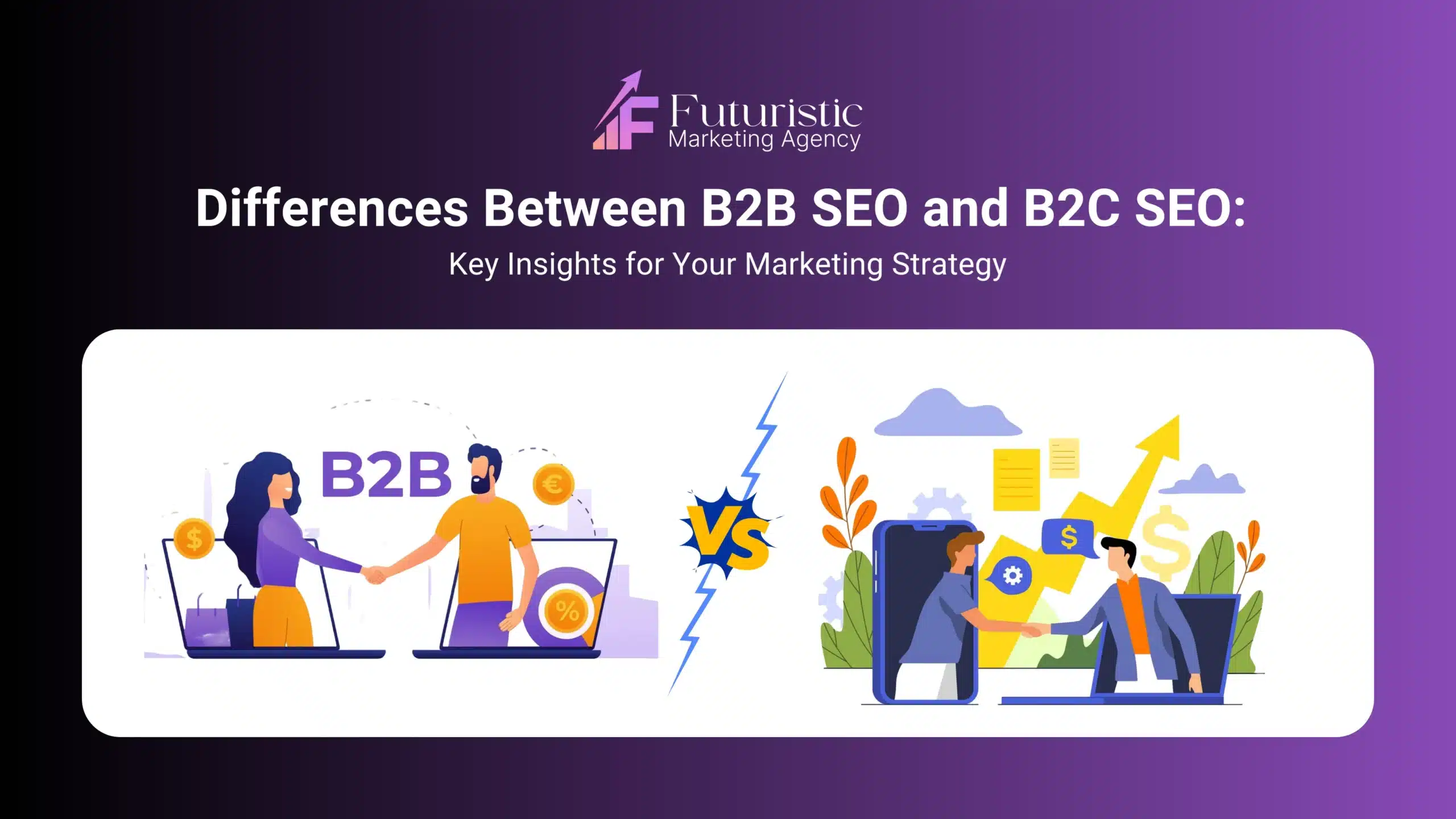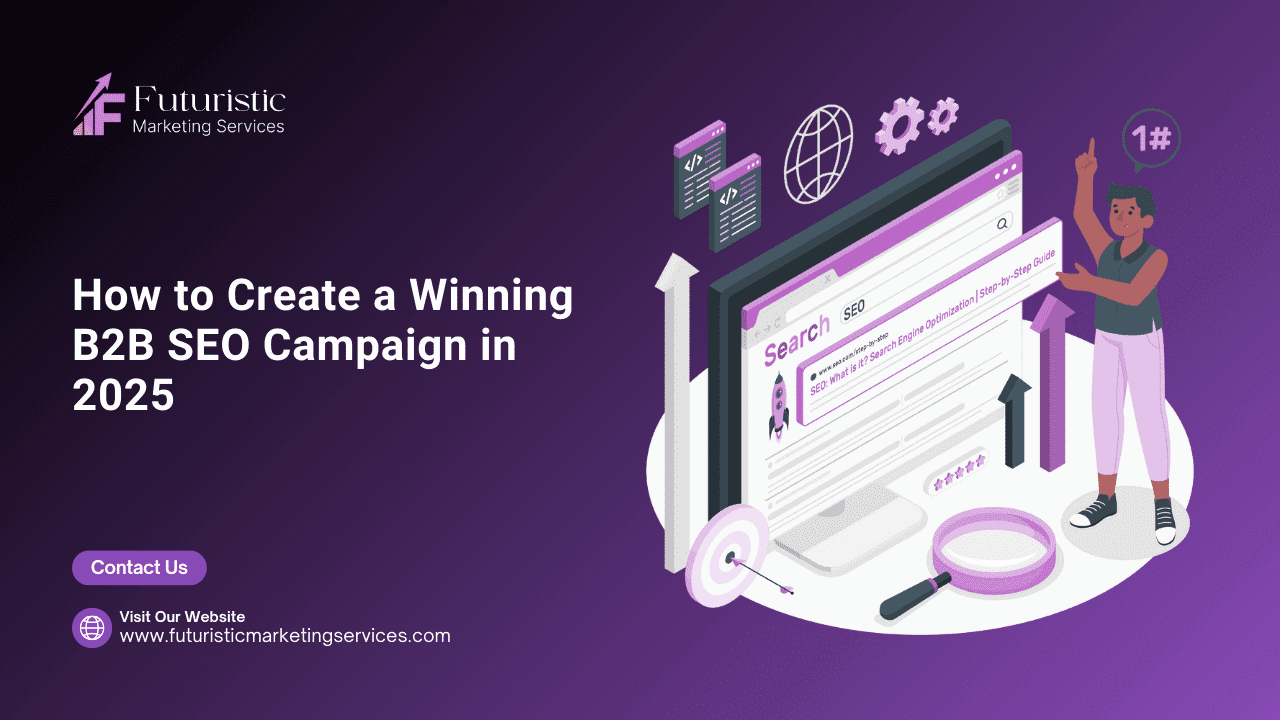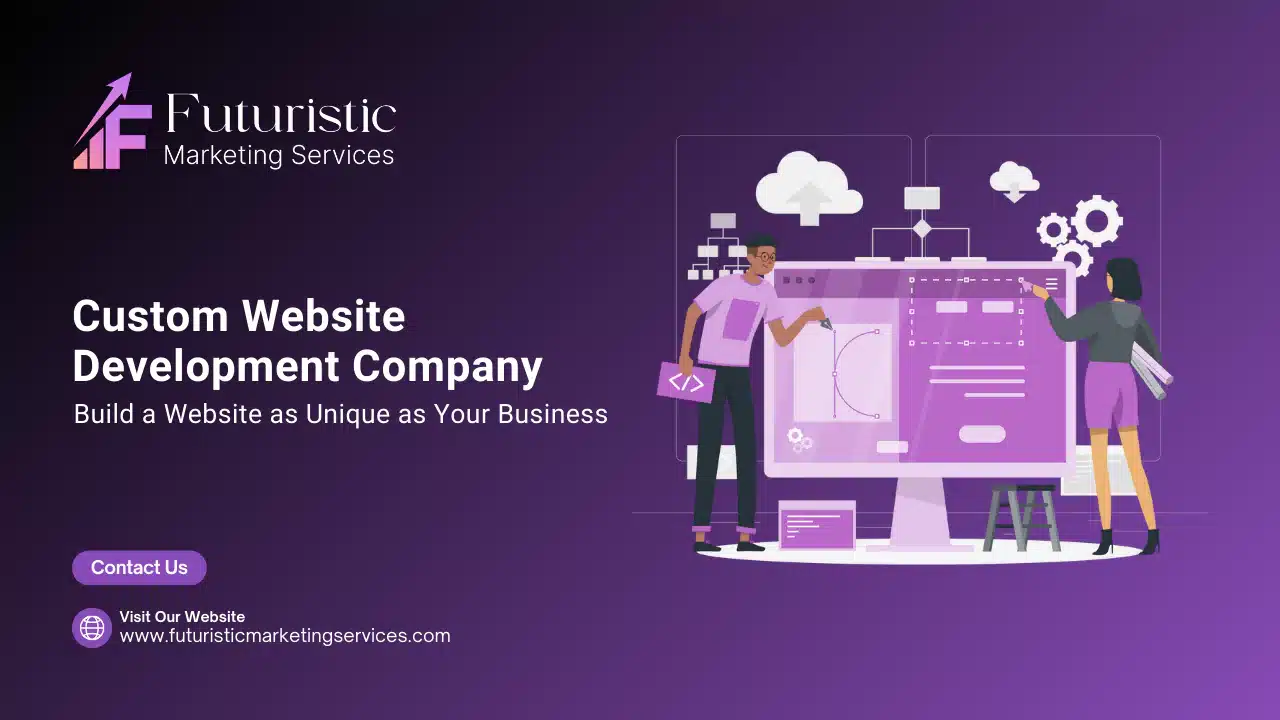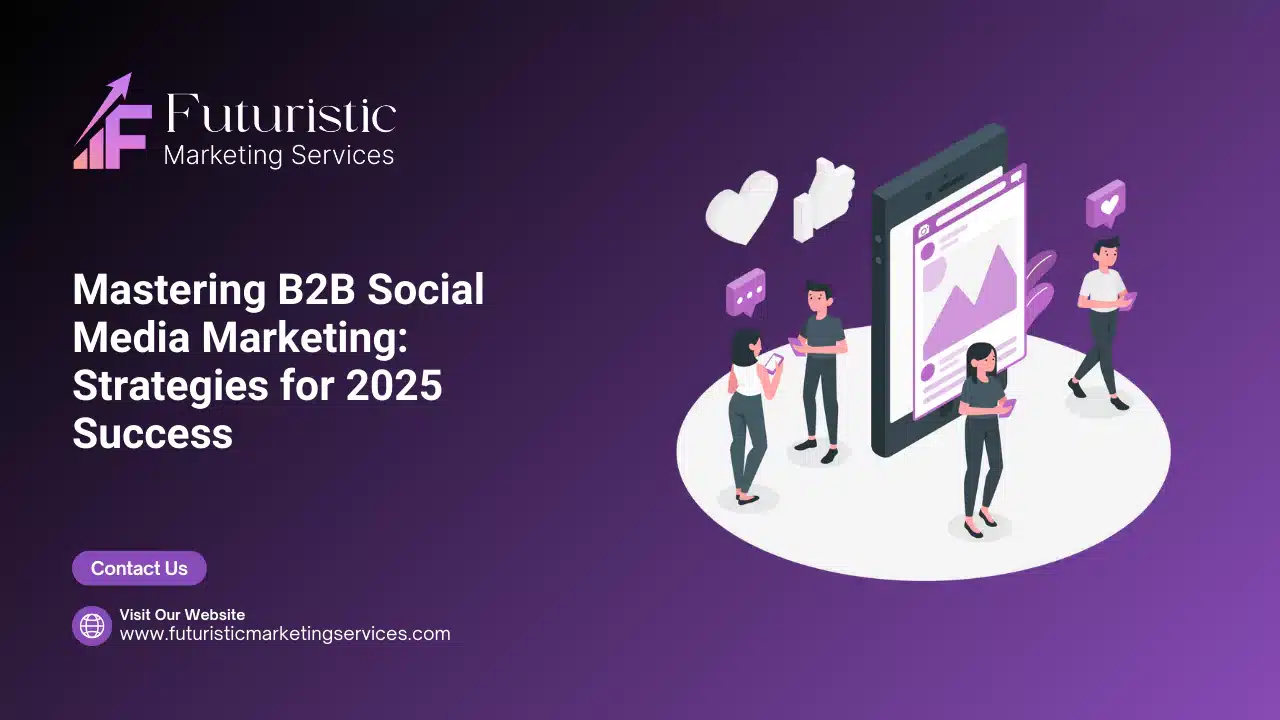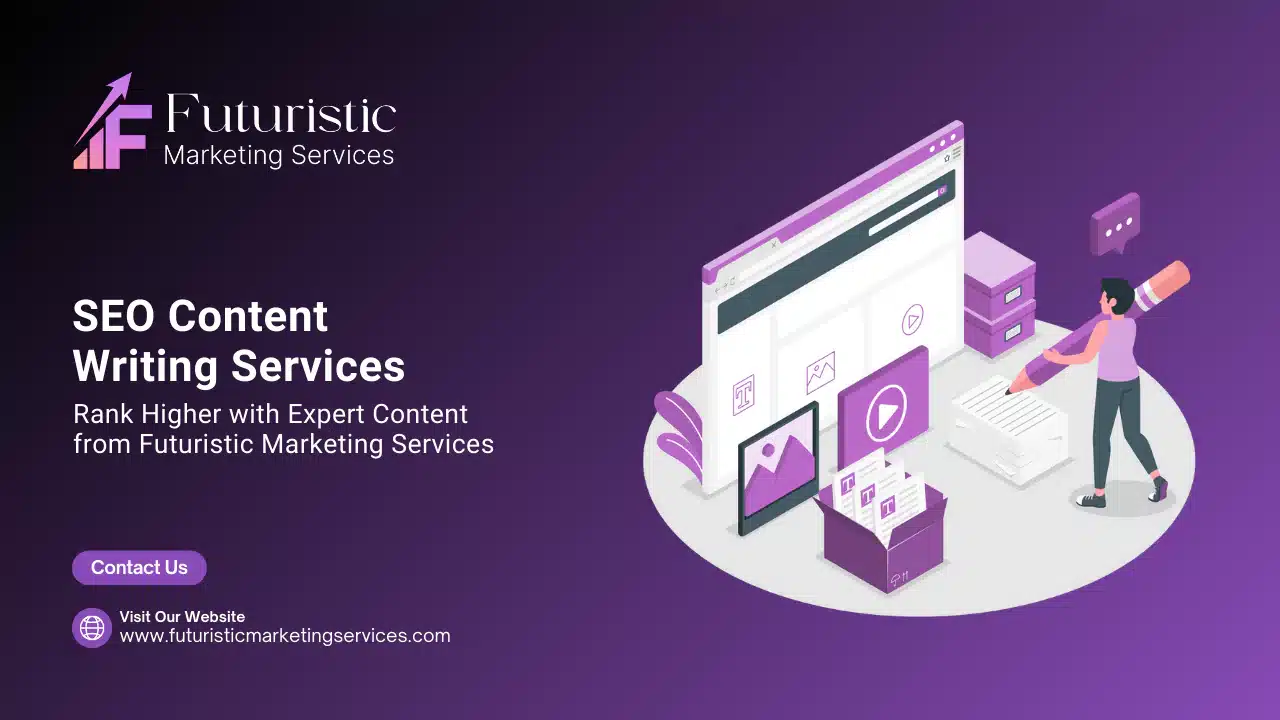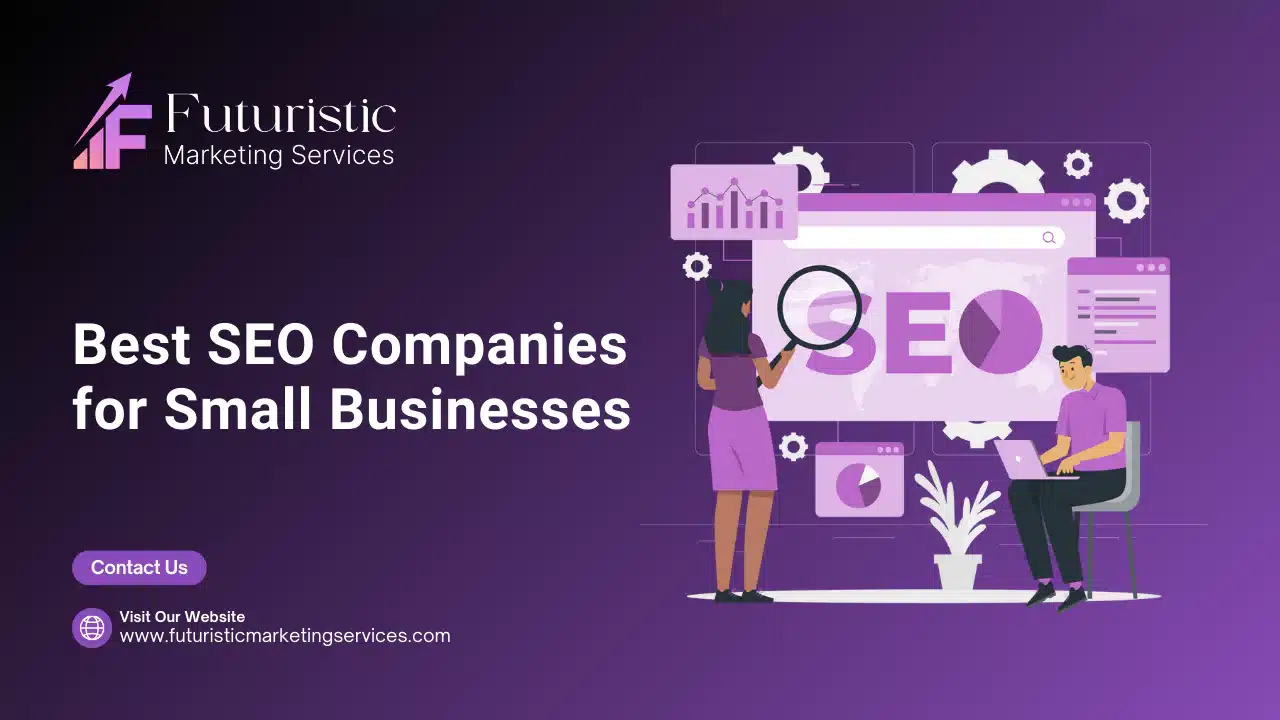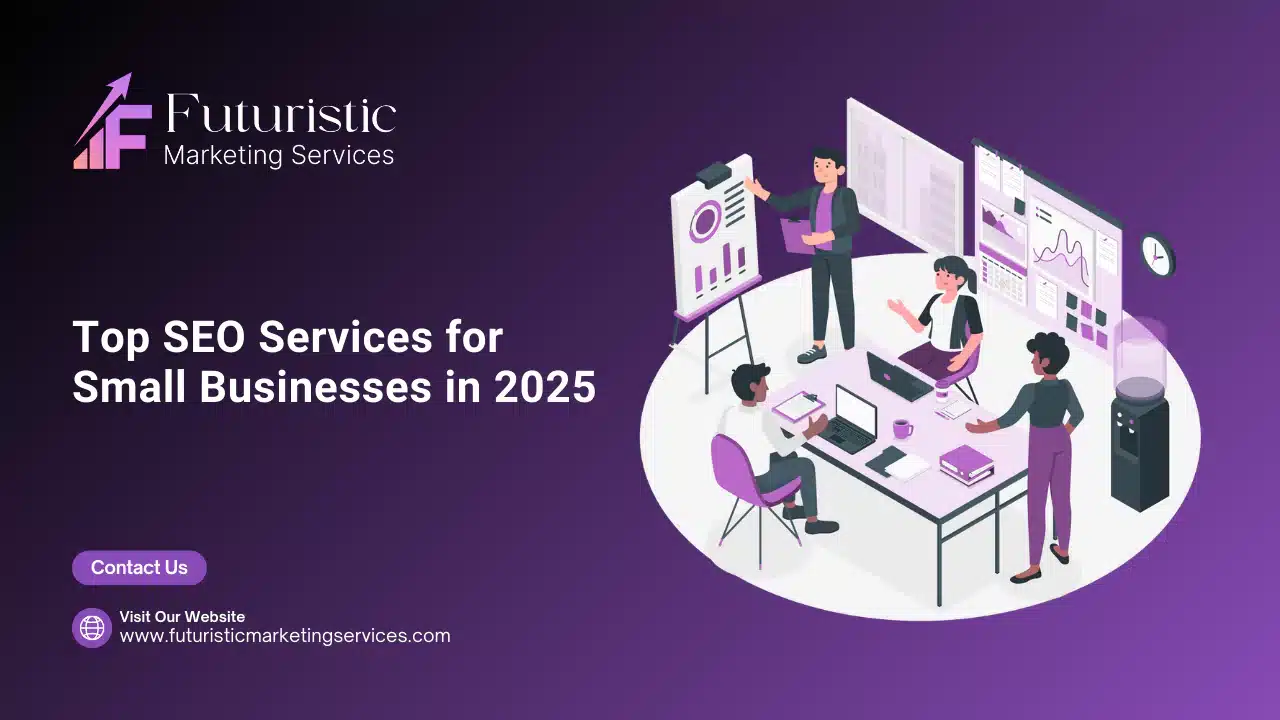Search Engine Optimization (SEO) plays a critical role in both B2B and B2C marketing strategies, but the approach for each is significantly different. Understanding these differences can help you optimize your strategy, improve search engine rankings, and ultimately drive more leads and sales. In this guide, we’ll dive deep into the key differences between B2B SEO and B2C SEO, helping you shape your strategy for maximum impact.
What’s the Difference Between B2B and B2C SEO?
When comparing B2B SEO and B2C SEO, the key difference lies in the audience. B2B SEO focuses on attracting business professionals and decision-makers, while B2C SEO targets individual consumers looking for quick solutions. Both strategies require tailored approaches to optimize rankings and conversions effectively.
key differences between B2B SEO and B2C SEO:
Criteria | B2B SEO | B2C SEO |
Target Audience | Business decision-makers (CEOs, Managers, Executives) | Individual consumers |
Sales Cycle | Longer, involves multiple stakeholders (3 to 12 months) | Shorter, direct and transactional (minutes to days) |
Content Type | In-depth content like whitepapers, case studies, webinars | Engaging, visually appealing content like product reviews, videos |
Keyword Focus | Long-tail, niche-specific keywords | Broad, high-volume keywords |
Conversion Focus | Lead generation and nurturing over time | Immediate conversions, focused on quick sales |
On-Page SEO | Focus on technical SEO, site structure, and long-form content | User experience (UX), mobile optimization, fast load times |
Link Building Strategy | Industry-specific backlinks, thought leadership | Social shares, influencer collaborations |
Search Intent | Informational and research-based queries | Transactional and purchase-driven queries |
User Experience | Requires detailed information for informed decisions | Focus on seamless navigation and quick purchasing decisions |
Mobile Optimization | Important but not as crucial | Critical due to high mobile traffic in B2C |
Target Audience in B2B SEO
In B2B SEO, the target audience is typically composed of professionals, such as managers, executives, and decision-makers. These individuals are searching for industry-specific solutions, services, or products that meet their business needs.
For example, a business might search for “best CRM software for small businesses” to compare options, making the buying process more methodical and drawn-out. The goal of B2B SEO is to establish your brand as a trusted authority through in-depth, educational content like case studies, whitepapers, and industry reports.
Why Search Intent Matters in B2B SEO
B2B buyers often engage in long-term research before making purchasing decisions. Therefore, search intent is focused on understanding business problems, finding solutions, and comparing vendors. Optimizing your content for these intents with long-tail keywords like “cloud-based CRM for enterprise” can help your content appear at key moments during the buying process.
Target Audience in B2C SEO
B2C SEO caters to individual consumers who are looking for quick solutions, often with emotional motivations. Whether they’re looking for product reviews, tutorials, or deals, the B2C audience generally wants instant gratification. Keywords like “best running shoes” or “fast delivery of electronics” resonate with B2C buyers.
Why Search Intent Matters in B2C SEO
In B2C, search intent often revolves around making a purchase decision quickly. Consumers may search for reviews, product comparisons, or discounts before buying. For example, someone searching “best budget laptops” is looking for a fast, affordable option. Your SEO strategy should focus on simplifying the decision-making process by providing clear and concise information.

Content Strategy: B2B vs. B2C
B2B SEO Content Focuses on Education and Thought Leadership
In B2B, content is king, but it must focus on education and building trust. Long-form content, such as whitepapers, case studies, and eBooks, plays a crucial role in nurturing leads. According to a study, 74.6% of B2B sales take at least four months to close, underscoring the importance of nurturing leads with valuable, in-depth content. Content should focus on addressing business problems and demonstrating how your solution fits into the buyer’s needs. Case studies showing how you helped other businesses can also be effective.
B2C SEO Content Focuses on Engagement and Quick Wins
B2C content is all about engagement and driving immediate action. Blog posts, product descriptions, and engaging videos are key in B2C SEO. The goal is to capture the consumer’s attention quickly, using emotional triggers to drive conversions. Content should be shorter, more visually appealing, and often more entertaining than B2B content.
For example, including testimonials, customer reviews, and video content showcasing your products in use can help drive consumer trust and engagement.
Sales Cycle Length and SEO Strategy
B2B SEO Requires a Long-Term Strategy
The B2B sales cycle is significantly longer and more complex than in B2C. Multiple stakeholders are involved, and each one requires tailored content to address their specific needs. SEO strategies should focus on creating content for every stage of the buyer’s journey—from awareness to decision.
For example, during the awareness stage, businesses may search for “what is CRM software”, while in the decision stage, they might search for “best CRM solutions for small businesses”. Your content needs to align with these different stages to guide the buyer through the decision-making process.
B2C SEO Is Designed for Shorter Sales Cycles
In contrast, B2C SEO supports much shorter sales cycles. A consumer looking for a “new pair of sneakers” may go from awareness to purchase within minutes. Therefore, your SEO strategy must facilitate quick conversions. Ensure your site is optimized for mobile, offers clear product descriptions, and includes call-to-action buttons that make it easy for consumers to purchase.

Keyword Strategy Differences
B2B SEO: Optimizing for Long-Tail Keywords
In B2B SEO, keyword research is essential for targeting niche markets and specific business needs. Long-tail keywords, like “best cloud accounting software for startups”, tend to be more effective because they capture specific search queries from decision-makers. This strategy also reduces competition and increases the likelihood of ranking highly for targeted terms.
B2C SEO: Using Broad, High-Volume Keywords
B2C SEO relies on broad, high-volume keywords that attract a larger audience. Shorter keywords like “affordable smartphones” or “best beauty products” are more likely to generate high traffic. However, ensure your content provides value to stand out from competitors.
On-Page SEO and Technical Optimization
On-Page SEO Techniques for B2B SEO
For B2B SEO, technical optimization is just as important as content. Ensure your site has a logical structure, uses schema markup, and is optimized for mobile. Internal linking is critical—linking to case studies, blog posts, and service pages enhances the user experience and boosts SEO.
On-Page SEO for B2C SEO
B2C SEO prioritizes user experience (UX). Ensure that your website loads quickly, is easy to navigate, and is mobile-optimized. Visual content such as product images and videos play a crucial role in B2C, and pages should be designed to convert visitors into customers.

Link Building Strategies
B2B Link Building: Focus on Industry-Specific Backlinks
In B2B SEO, acquiring backlinks from industry-specific sites can significantly boost your search rankings. These links not only enhance your credibility but also drive targeted traffic. For example, having a case study featured on a well-regarded industry blog can attract high-quality leads.
B2C Link Building: Social Sharing and Customer Reviews
B2C link building focuses more on generating user engagement through social sharing, customer reviews, and testimonials. Building relationships with influencers and getting featured in top blogs can also help boost visibility in search results.
Conclusion: Choosing the Right SEO Strategy for Your Business
In conclusion, understanding the key differences between B2B and B2C SEO can help you tailor your approach to meet the needs of your audience. Whether you’re focusing on long-term lead nurturing for B2B or quick conversions for B2C, implementing the right SEO strategy can drive higher rankings and more business.
Looking for more ways to optimize your SEO strategy? Explore Futuristic Marketing Services for expert SEO guidance that helps your business succeed.

